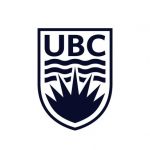
We place a high priority on the training of highly qualified personnel and believe that research trainees (including undergraduate students, graduate students, research associates, and post-doctoral fellows) are the greatest assets to our program. Our vision is to provide a training environment that facilitates and inspires trainees to seek new knowledge. Trainees gain “hands-on” experience with leading edge technology and research. These individuals will be well prepared for a future career in health care, medicine, and/or academia.
Both Dr. Bredin and. Dr. Warburton supervise course-based MKIN students through the School of Kinesiology. Dr. Bredin also supervises MA, MSc, and PhD students through the School of Kinesiology. Dr. Warburton supervises MSc and PhD students through both the School of Kinesiology, Faculty of Education and the Experimental Medicine Program, Faculty of Medicine. Interested students may apply through either program depending upon their background training. Please contact each supervisor to discuss the different training options.
All prospective graduate students are asked to conduct an interview before acceptance into our research program. This includes meeting with Drs. Bredin and Warburton, current trainees, and other faculty members. Often these meetings are done virtually using programs such as Zoom, Skype, and Facetime. However, if feasible, it is recommended that potential trainees tour the University of British Columbia and meet with our current trainees to determine the fit of our program.
Individuals interested in applying are required to contact Dr. Bredin and Dr. Warburton well in advance. Most successful applicants contact our program the year prior to starting at the University of British Columbia. This allows for the trainee and supervisor to work together to secure funding.
We are extremely proud of our trainees and their ability to secure external funding. This success is related strongly to their ability to work together with our team, and submit applications to various funding agencies well in advance of starting their program. Securing external funding is an expectation of our collective laboratories, and we work hard to ensure that our trainees have every possibility for success. Funding support allows students to have dedicated time for their studies. Doctoral students may require confirmation of external funding (of at least $15,000 per year) prior to acceptance.
It is important to remember that application deadlines for various granting agencies occur throughout the year, with the majority of applications being due early into the new school year (i.e., August through September). Individual departments (such as Kinesiology and Experimental Medicine) have their own deadlines that are earlier than the granting agency. Graduate Studies has a great website that outlines the diverse funding, scholarship and award opportunities open to domestic and international applicants and students.
We receive several applications per year. Students who have attained a first class standing in their undergraduate and/or graduate studies will be selected preferentially into our research program. The undergraduate average of entering graduate students is generally above 85% for our research program.
Incoming trainees are selected according to their fit with our program of research, undergraduate/graduate marks, interpersonal and communication skills, potential for scholarship, and work ethic. Intelligent students, who have an established work ethic and strong interpersonal skills, will have a high likelihood of success in our research program. The ability to work within a team setting is of paramount importance. All of our research involves collaborations with Indigenous community leaders, high performance athletes and coaches, healthcare professionals, non-profit organizations, government representatives, and/or other research laboratories. As such, success in our laboratory is dependent highly on our trainees’ ability to work with others and be self-directed.
We are proud of the success of our trainees. Those trainees that have published extensively and received recognition for their work have done so because of their hard work, dedication, and ability to work with others. Please note that our program of research publishes 15-25 papers per year, and as such there are numerous opportunities for professional development for our trainees. To be able to achieve this level of productivity and innovation, it is essential that our trainees are able to work closely with others in a collegial manner. As outlined previously, it is our expectation that research trainees have published and collaborated on numerous projects during their time at the University of British Columbia. Each trainee is unique; however, it is not uncommon for MSc students to have published more than 10 articles, while PhD students often are involved with the publication of more than 15 articles. Many of these papers are co-authored papers involving other collaborators (researchers and trainees). We find that these sorts of collaborations prepare our trainees for future success in academia and other settings.
